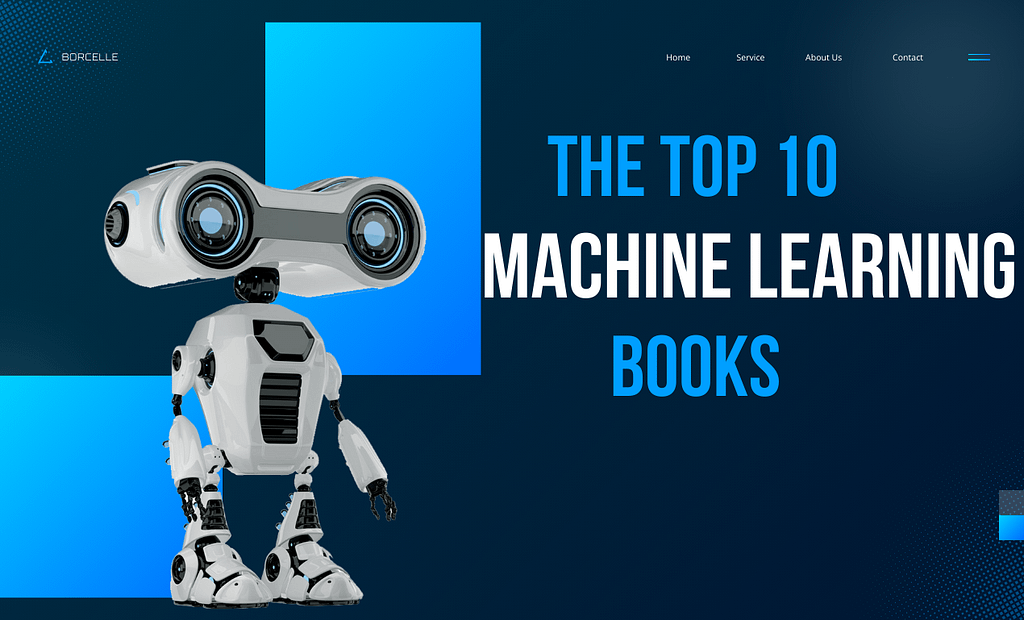The Top 10 Books on Machine Learning You Should Read

Machine learning (ML) has become a pivotal technology in the modern era, transforming industries and enabling new innovations. For those looking to delve into this field, there is a wealth of literature available. Here are the top 10 books on machine learning that you should read to build a strong foundation and advance your knowledge.
1. “Pattern Recognition and Machine Learning” by Christopher M. Bishop
Overview: This book provides a comprehensive introduction to the field of pattern recognition and machine learning. It covers both probabilistic graphical models and neural networks.
Key Highlights:
- Detailed mathematical explanations
- Numerous examples and exercises
- Coverage of Bayesian networks and hidden Markov models
Why Read It: Ideal for those with a strong mathematical background looking to understand the theoretical underpinnings of machine learning.
2. “Machine Learning: A Probabilistic Perspective” by Kevin P. Murphy
Overview: Murphy’s book offers an in-depth look at probabilistic models and methods in machine learning, emphasizing a Bayesian approach.
Key Highlights:
- Extensive coverage of probabilistic graphical models
- Practical examples and case studies
- Includes MATLAB code for various algorithms
Why Read It: Suitable for readers interested in the probabilistic and Bayesian aspects of machine learning.
3. “Deep Learning” by Ian Goodfellow, Yoshua Bengio, and Aaron Courville
Overview: Written by leading experts, this book covers the principles and methods of deep learning, a subset of machine learning focused on neural networks.
Key Highlights:
- Comprehensive coverage of deep learning techniques
- Mathematical foundations and practical applications
- Insightful discussions on the future of deep learning
Why Read It: Essential for anyone looking to specialize in deep learning.
4. “The Elements of Statistical Learning” by Trevor Hastie, Robert Tibshirani, and Jerome Friedman
Overview: This classic text covers a wide range of topics in statistical learning, including regression, classification, and clustering.
Key Highlights:
- Clear explanations and extensive use of graphics
- Coverage of both supervised and unsupervised learning
- Real-world examples and data sets
Why Read It: A must-read for those seeking a solid foundation in statistical learning techniques.
5. “Hands-On Machine Learning with Scikit-Learn, Keras, and TensorFlow” by Aurélien Géron
Overview: Géron’s book is a practical guide to building and training machine learning models using popular Python libraries.
Key Highlights:
- Step-by-step tutorials and exercises
- Practical advice on model selection and hyperparameter tuning
- Code examples in Python
Why Read It: Perfect for practitioners who want to apply machine learning techniques using Python.
6. “An Introduction to Statistical Learning” by Gareth James, Daniela Witten, Trevor Hastie, and Robert Tibshirani
Overview: This book provides an accessible introduction to statistical learning methods with an emphasis on practical applications.
Key Highlights:
- Intuitive explanations and visualizations
- R code examples for each technique
- Practical applications and case studies
Why Read It: Ideal for beginners and those who prefer a more applied approach to learning machine learning.
7. “Pattern Recognition and Machine Learning” by Christopher Bishop
Overview: Another excellent book by Bishop, focusing on pattern recognition and the mathematical foundations of machine learning.
Key Highlights:
- Probabilistic approaches to pattern recognition
- Detailed theoretical explanations
- Comprehensive coverage of different ML algorithms
Why Read It: For those who want a deeper understanding of the mathematical concepts in machine learning.
8. “Artificial Intelligence: A Modern Approach” by Stuart Russell and Peter Norvig
Overview: While not exclusively about machine learning, this book covers a broad range of AI topics, including many fundamental machine learning concepts.
Key Highlights:
- Extensive coverage of AI principles
- Practical algorithms and their applications
- Insightful discussions on the ethics of AI
Why Read It: A broad overview of AI, including machine learning, suitable for both beginners and advanced readers.
9. “Deep Reinforcement Learning Hands-On” by Maxim Lapan
Overview: This book provides a practical guide to deep reinforcement learning, combining theory with hands-on coding examples.
Key Highlights:
- Comprehensive introduction to reinforcement learning
- Step-by-step coding tutorials in Python
- Practical applications and case studies
Why Read It: Essential for those interested in applying reinforcement learning techniques.
10. “Bayesian Reasoning and Machine Learning” by David Barber
Overview: Barber’s book focuses on the Bayesian approach to machine learning, providing both theoretical and practical insights.
Key Highlights:
- Detailed coverage of Bayesian methods
- Practical examples and code snippets
- Emphasis on graphical models and inference
Why Read It: Perfect for readers who want to explore the Bayesian perspective in machine learning.
Table of Contents
Conclusion
These top ten books offer a comprehensive journey through the world of machine learning, from foundational theories to advanced practical applications. Whether you are a beginner just starting out or an experienced practitioner looking to deepen your knowledge, these books will provide valuable insights and help you stay at the forefront of this rapidly evolving field. Happy reading!
